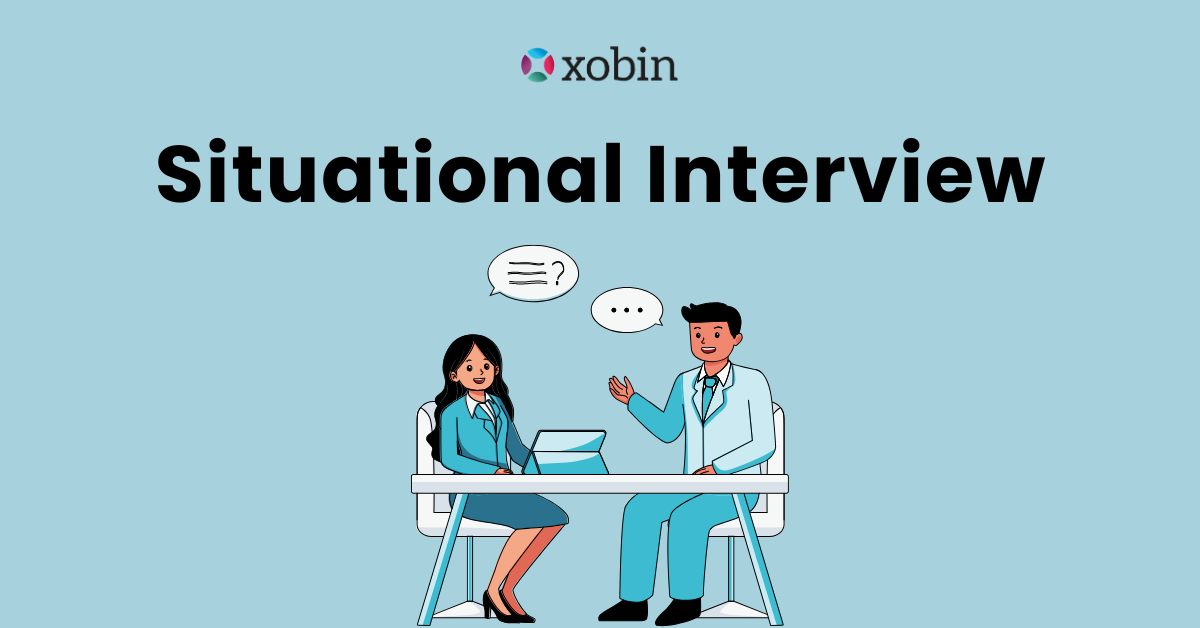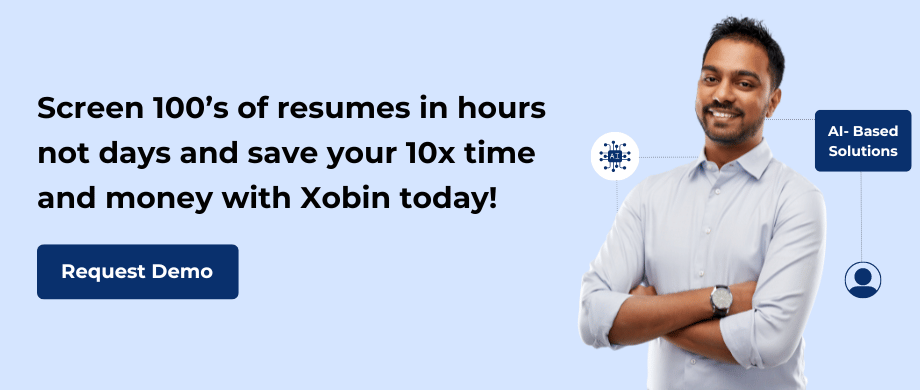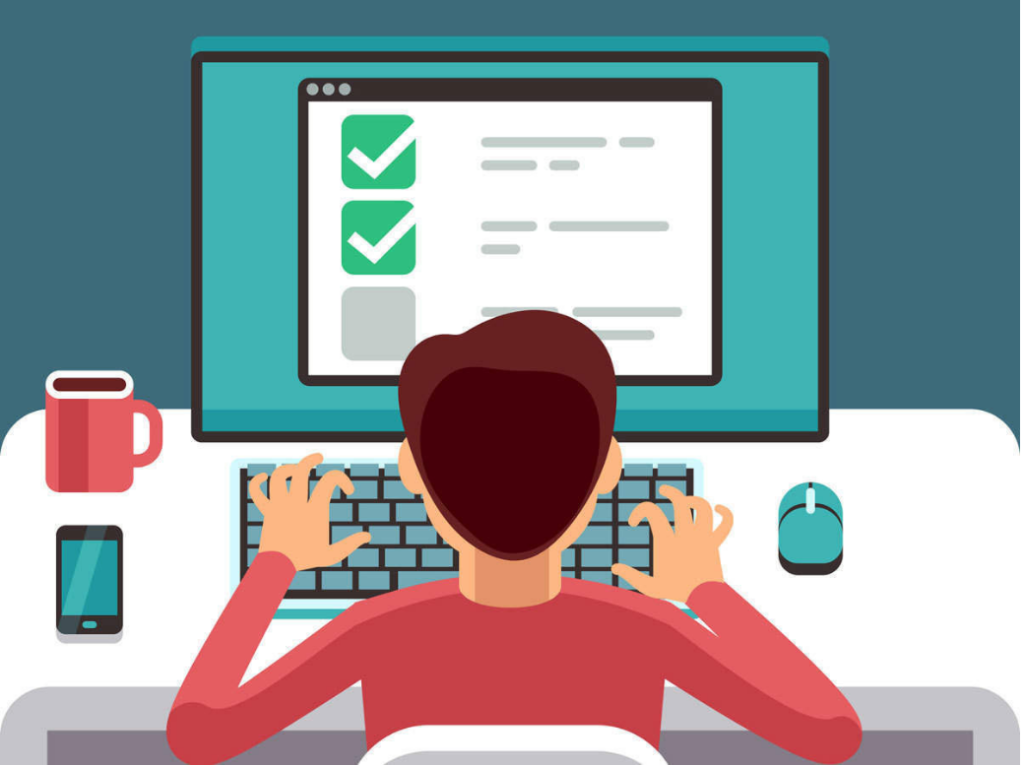XOBIPEDIA
HR Glossary

Will the selected candidate be able to handle a difficult situation? Are they capable of leading a team while overcoming conflicts in the team? These are only a few of the questions that a recruiter may think about to evaluating candidates, based on the fact of how well can they handle difficult situations.
Here are a few of the points you need to know about situational interviews.
What is a Situational Interview?
In a situational interview, the candidates are asked hypothetical questions that are focused on the future. The questions here are designed to draw out more analytical and problem-solving skills and how well the interviewee.
Types of interviews
There is quite a variety of interviews, some of the common types are
- Face-to-face interview
This is an in-person meeting between the interviewer and the interviewee.
- Telephonic or virtual interview
Here the recruiter and candidate connect through a phone or video call.
- Panel/ Group interview
These interviews either have a number of interviewers(panel) or a number of interviewees(group).
- Behavioural interview
These interviews have questions designed which test the way a candidate behaves and thinks in situations. The situational interview comes under this.
- Sequential interview
A number of interviews with a different interviewer every time takes place here.

How Situational Interview is different from other interviews?
The interviews focus on the future work, instead of questions about past experiences, the candidate is asked about problems they may face in their job. The questions are hypothetical, where the evaluation is based on how well can a candidate handle them.
Sequential interviews test a candidate’s problem-solving skills, knowledge, and expertise. It helps in determining how capable a candidate is of performing under pressure.
How Does a Situational Interview help in hiring?
The situational questions force the candidates to think about how they would handle the challenges associated with the role. It also makes them go off script and critically think about situations they may encounter if hired.
It not only gives the idea of how well the candidates handle the specifics of the job role but also helps in giving an insight into what they value or overlook.
Some examples of situational questions, to help you in understanding the concept:
- How would you pitch this product or service?
- What will be your approach toward a task which you have never done before?
- How would you handle an aggressive customer or client?
- What would you do if you have a disagreement with a team member?
We hope this article helped you. For more interesting articles;

Recommended Content

Video Interviews can simplify your hiring
Don’t let a packed schedule be a hindrance in recruitment. Use structured interviews with the power of video to screen applicants. Understand the communication skills, motivation, and job skills using video interviews.

Pre-employment Testing: The Complete Guide
Move over from pen-paper based tests and manually checked assignments to pre-employment assessments. Democratize your organization hiring by screening for skills before you interview.

How can Employers adapt to Remote Hiring
With most jobs going remote, your best applicants could be in Melbourne or Miami. From remote screening and virtual interviews to remote onboarding, Learn the best practices to get started.


